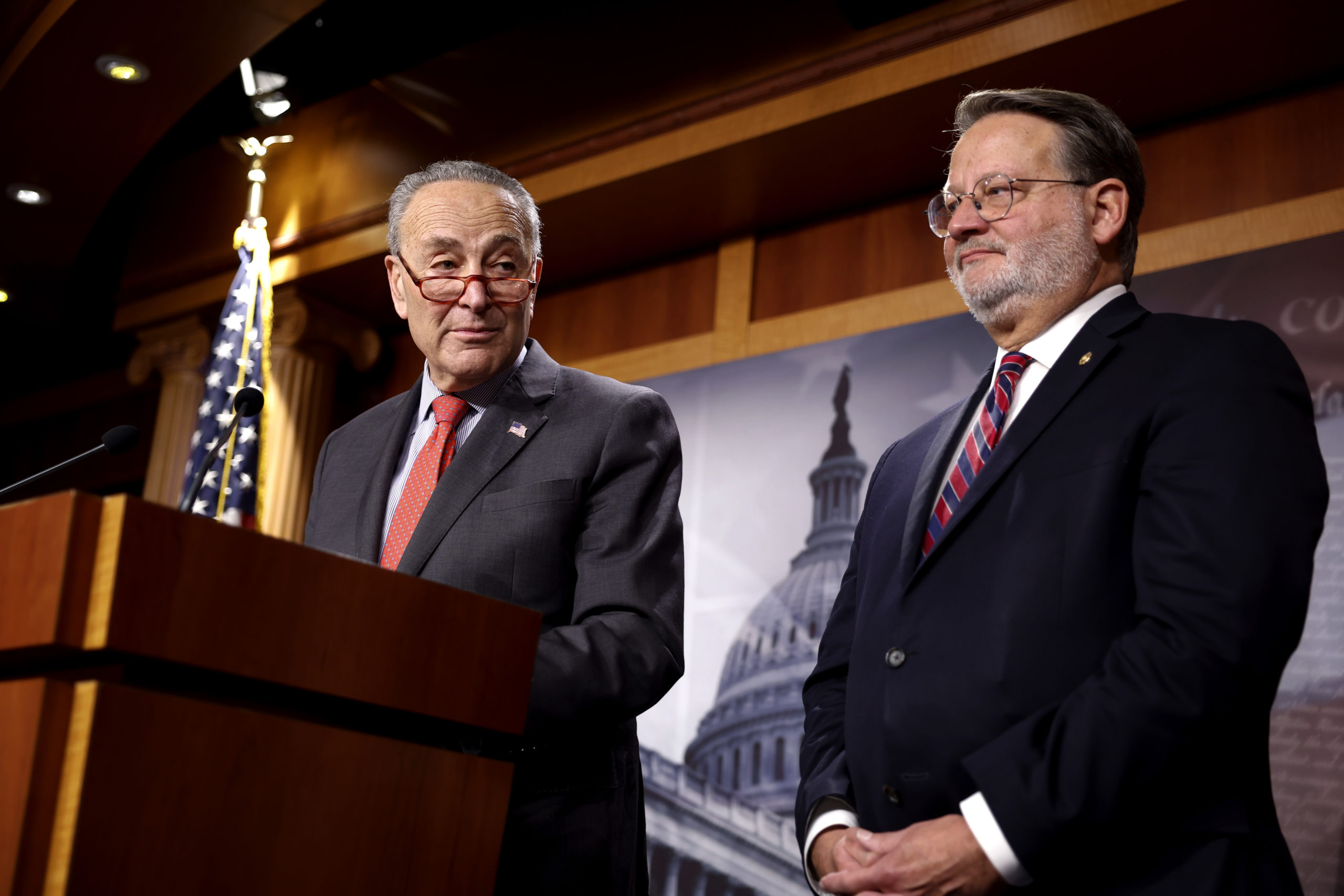If Republicans win the majority in the Senate in 2024, they could be well-positioned to retain control of the upper chamber for the rest of the decade, according to the political landscape through 2030.
Senate Republicans are targeting vulnerable Democrats in red and battleground states during an election year where former President Donald Trump and President Joe Biden could be on the top of the ticket. Republicans could stay in power for the following six years based on races in the next two cycles lacking pickup opportunities for either party, making the already contentious election more determinative of party control in Washington, D.C.
“There are three red states held by Democrats that are up in 2024 — West Virginia, Montana, and Ohio. But there are zero red states held by Democrats that are up in 2026 and 2028,” Jason Thielman, the executive director of the National Republican Senatorial Committee (NRSC), told The Washington Post. “Conversely, Maine is the only blue state held by a Republican that is up before 2030.”
In 2026 and 2028, the only Democratic-held seats up for reelection are in states that went for Biden in 2020, including New Jersey, Delaware, Illinois, Colorado, New Mexico, Massachusetts, Oregon, Michigan, Rhode Island, New Hampshire, Minnesota, Virginia, Georgia Connecticut, Nevada, Pennsylvania, Arizona, Washington, California, Hawaii, New York, Maryland and Vermont.
Additionally, there aren’t any Republican-held seats in blue states up for reelection in either year besides GOP Sen. Susan Collins of Maine in 2026. Across both cycles, GOP senators in states that went for Trump in 2020 will be on the ballot, like West Virginia, Louisiana, Texas, Arkansas, Montana, Iowa, South Carolina, Tennessee, Mississippi, Wyoming, Kansas, Kentucky, Oklahoma, Nebraska, Idaho, South Dakota, North Dakota, North Carolina, Alabama, Utah, Florida, Missouri, Ohio and Indiana.
Republican Sen. Ron Johnson of Wisconsin will also be up for reelection in 2028 in the state that went for Trump in 2016 but flipped to Biden in 2020. (RELATED: ‘A Great Map’: Here’s How The GOP Could Win Back Control Of The Senate In 2024)

WASHINGTON, DC – DECEMBER 07: U.S. Senate Majority Leader Chuck Schumer (D-NY) speaks at a press conference alongside Sen. Gary Peters (D-MI) about the Senate Democrats expanded majority for the next 118th Congress at the U.S. Capitol Building. (Anna Moneymaker/Getty Images)
Democratic Senatorial Campaign Committee (DSCC) executive director Christie Roberts told The Post she’s focused on the “amount of GOP Senate candidates who are just rich guys with tenuous connections to the states they are running in,” a nod to Republicans Tim Sheehy in Montana and David McCormick in Pennsylvania. Both have self-funded their campaigns and have lived outside of their respective states, according to the outlet.
Democrats believe their party is in a “strong position” to hold its narrow majority in November, counting on the “strength of our candidates and campaigns,” competitive Republican primaries and the issue of abortion, according to a DSCC memo previously obtained by the Daily Caller News Foundation.
The Cook Political Report characterizes more Democratic-held seats as competitive than Republican, with West Virginia Sen. Joe Manchin moving to “Solid Republican” after he decided not to seek another term.
Democratic Sens. Jon Tester of Montana and Sherrod Brown of Ohio are considered “Toss Up[s]” alongside independent Sen. Kyrsten Sinema of Arizona, who caucuses with the party. Outgoing Democratic Sen. Debbie Stabenow of Michigan’s seat is in the “Lean D” category along with colleagues Jacky Rosen of Nevada, Bob Casey of Pennsylvania and Tammy Baldwin of Wisconsin.
All content created by the Daily Caller News Foundation, an independent and nonpartisan newswire service, is available without charge to any legitimate news publisher that can provide a large audience. All republished articles must include our logo, our reporter’s byline and their DCNF affiliation. For any questions about our guidelines or partnering with us, please contact licensing@dailycallernewsfoundation.org.


